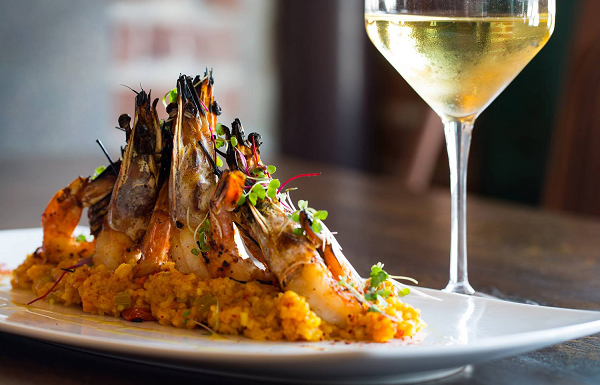
Let me describe the average Greek meal as I have experienced it over the years. Food preparation takes hours?—?very often not because the recipes themselves require it, but because the whole process takes on the form of group therapy. This is a time when everyone gets to talk about their problems over nibbles and drinks. You will never not hear someone complaining about this or that. It’s just the way it is.
As the day progresses and the table is set, almost certainly politics become the main topic of conversation. Loudness and obnoxiousness is allowed. The alcohol keeps flowing. The idea of main dishes is often cast aside as small, shared meze plates dominate the table. And, as the saying goes, “if there are no leftovers, it wasn’t enough.” Even beyond what’s eaten, this is catharsis, a celebration of being alive despite everything.
In a recent film, The Pioppi Protocol, a group of researchers and filmmakers argue that there’s more to the Mediterranean diet than its food. There’s a reason that these countries have remarkable life-expectancy rates and low instances of problems like heart disease, despite populations with some of the heaviest smokers and most gym-shy people on the continent. (The average person in the southern Italian village featured in the movie, Pioppi, lives to 90; the film’s tagline is “reclaiming the secrets of Mediterranean longevity from the village where people forget to die.”)
The benefits of eating like a Mediterranean are already widely known – the plentiful vegetables, fish, variety of meats, and olive oil (not to mention a few splashes of red wine) amount to just about the best thing you can possibly hope to call a diet. It’s not necessarily the cheapest way to live, but here on the shores of the Med where I’m currently staying it’s just what’s around and readily available.
In big contrast to non-Med countries, spending hours on a weekday evening in the company of friends, just eating and drinking after work, is seen as pretty normal. A group in a tavern is expected to spend hours there, too. If I’m honest about what makes the quality of life here so great, this is a big part of it.
Of course it’s not, or it shouldn’t be, news to anyone that a low-stress way of life is better for you. But to address a shortage of what we’re able to buy and put on our plate, we must look for a more holistic approach to eating and well-being. I despise monastic approaches to how one should live, and the idea of eating bugs and other such critters makes me die a bit inside (although snails boiled in wine and rosemary are excellent). But eating is, and always has been, a spiritual exercise as much as a material one. The mistake is to try and consume our way to health, because in that sense, we’re truly screwed — it’s unsustainable and unfair to the developing world.
This Forbes article says that such an approach can have a wide-ranging impact. Within debates about productivity, anxiety, shortening the working day, etc., lurks the unsatisfactory way in which we shape the social context of our eating, cooking, and dining out. We shouldn’t shy away from the things that make us happy. Even things like a lack of food variety that impose limitations can have redeeming qualities. If the future brings less to choose from, we shouldn’t be wary of discovering why, in the end, it might be the least important side of an enjoyable, healthy meal.
Decreasing rainfall means that the areas where these products are cultivated will start disappearing. Already, in Egypt for instance, this is considered a future source of political instability. The over-fished seas are also coming under threat, alongside the diminishing water supplies on the mainland, something which has contributed to various crises in the area already.
This means a lot of ingredients will become rarer and dearer. It doesn’t feel extreme to say that the current Med diet might become unattainable within this century.
At foodwatch.com.au they point out that it won’t be the only one either. Other parts of the world might find it difficult to sustain the high levels of food production we currently enjoy, but I’ll leave that to people with more knowledge on the subject to examine. We all, however, need to think about a future culture in which this scenario is our likely reality.
Will our standard of living decrease as fishing stocks are decimated? Or will the simple fact that our lifestyles are less amenable to communal dining be just as important a loss? Don’t think this is just about stressful jobs and individualistic consumption habits – for a lot of young people in the world’s major cities, communal living and public spaces simply aren’t there, while unemployment (and underemployment) also plays a role.
These are challenges, with economic and social consequences, that we will have to face. As our labor becomes increasingly irrelevant (thanks to automation) and our incomes decline, we’ll also have to find a way to deal with scarcity, for the sake of our collective mental health. It looks bleak. But the good news is, it doesn’t have to.
What remains, even as what we eat changes, is one well-kept “secret” that can pave the path to a potential post-foodie eating experience. The solution might be as simple as looking beyond what we consume and returning to what food was always about in the Med—good company.